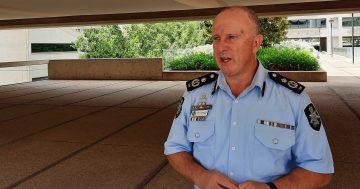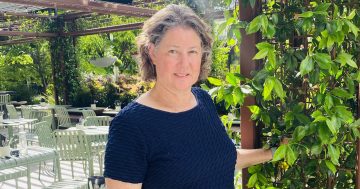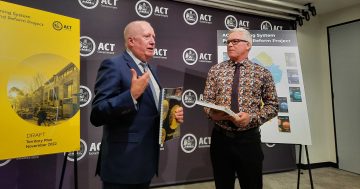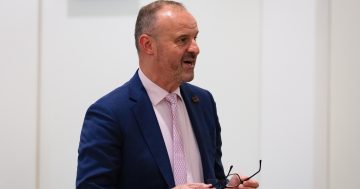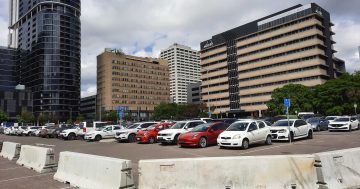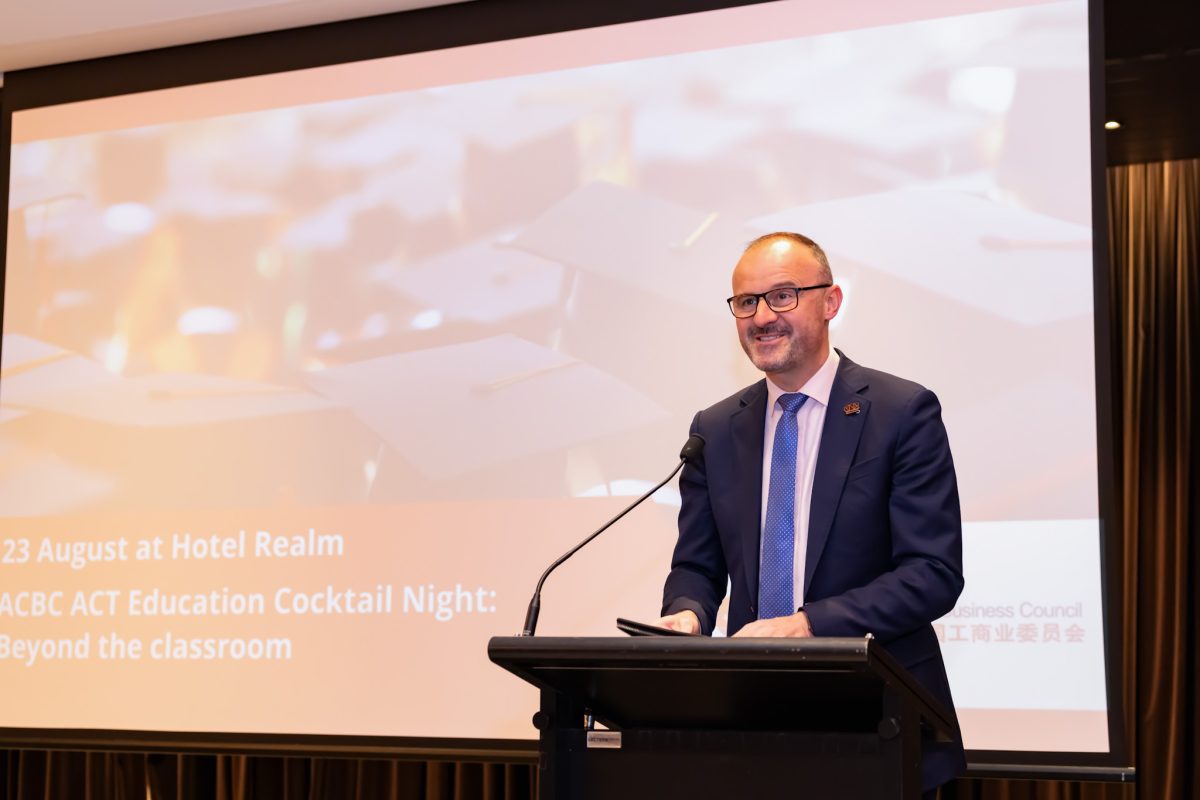
Chief Minister Andrew Barr: community councils are way down on the list for Canberrans to engage with government. Photo: ACBA ACT.
Canberra’s volunteer community councils have been around for decades, but their future as viable organisations and contributors to the capital’s civic discourse is looking increasingly hazy.
Age, burnout and the trend towards less engagement generally and fewer people volunteering means the councils are relying on a shrinking support base and, in some cases, the same representatives for many years.
Weston Creek Community Council has found itself in a position where it hasn’t been able to elect a new committee after the old one stepped aside exhausted and wanting others to pick up the baton.
No one did.
It will have another go next month, but it is seeking advice about what to do.
Meanwhile, long-time Woden Valley Community Council president Fiona Carrick would gladly help out through a merger. But that idea has little support in Weston Creek, even if the locals are reluctant to step up themselves.
Ms Carrick would even take in the Molonglo Valley, but that district’s Community Forum has said no thanks.
Not all councils are in this dire a situation, but Chief Minister Andrew Barr questions their relevance, saying their town hall-style meetings are relics of the last century, even though they are live-streamed for anyone interested.
Not many MLAs and officials turn up these days, which some see as a deliberate tactic to sideline the councils that tend not to tell the government what it wants to hear.
This is especially the case with those who have retired planners and architects as members who regularly criticise development and the government’s planning approach, including its reform process.
Mr Barr says the councils have to change, and he has cut the number of public meetings required of them from nine to four under the Deed of Grant that dispenses $13,000 a year to help them operate.
They also now have to hold two other kinds of meetings with groups such as people with disability or young people to encourage a broader connection with the community and take them “out of their comfort zone”.
Molonglo has again said no thanks, opting to go its own way for the present and not take the government’s money, reverting to being an incorporated association funded by membership fees and community donations.
It is no secret that the government has embraced the digital age to connect with the community, and Mr Barr points to its online community panel with more than 7000 members.
“That gives us a much broader reach into the community and a much better and demographically representative sample of Canberrans views on issues,” Mr Barr said.
But it also keeps criticism at a manageable distance and enables the government to process feedback to its own advantage.
Mr Barr says the councils are not demographically representative of the communities they serve because the format, timing and location of their meetings are not conducive to community participation.
“They are the ninth most preferred way of engaging with government, so way down the list,” Mr Barr says.
Asked directly if they have a future, Mr Barr is ambivalent, saying the government will see how the changes go.
He should also remember that democracy is a messy thing, but the alternative is worse.
Outgoing Weston Creek Community Council chair Bill Gemmell says Mr Barr stopped listening long ago but also believes the community council model is broken.
He and Molonglo Valley Community Forum chair Ryan Hemsley have suggested a new system of district directors or ‘champions’ within the bureaucracy to engage with the public and representative district committees.
Ms Carrick has floated the idea of paid positions, but there appears to be little support for that.
The community councils may be able to stutter on, some better than others, but if they are to regain a stronger foothold in the community discussion, they must find new faces, a more frequent rotation of leaders, new ways of connecting with people and be more representative.
Somehow they must also alter the perception that they are reflexively anti-development NIMBYs, especially with younger Canberrans clamouring for cheaper and more convenient housing.
Doing this while maintaining proper scrutiny of poor planning and development won’t be easy.














